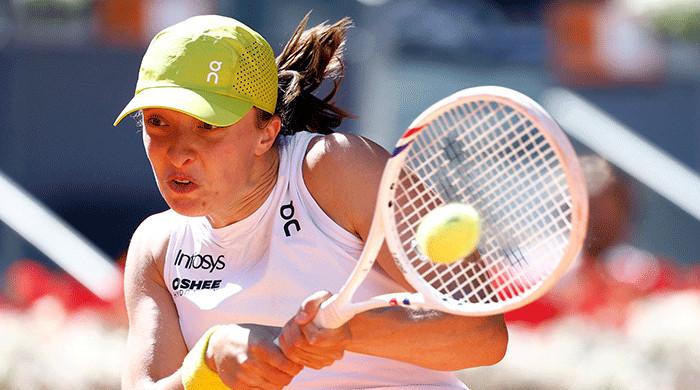Swiatek Highlights Player Paranoia Amid Strict Anti-Doping Measures
World No. 2, Iga Swiatek, has openly discussed the mental strain imposed by stringent anti-doping protocols in tennis. She revealed experiencing significant challenges following her suspension last year due to a tainted over-the-counter melatonin supplement.
Swiatek faced a one-month suspension after the International Tennis Integrity Agency (ITIA) found trimetazidine, a prohibited substance, in her system, stemming from non-prescription melatonin. The agency conceded that the positive result wasn’t due to intentional doping.
The Polish athlete’s remarks come at a time of increased apprehension within the tennis world, particularly after similar high-profile incidents, such as that of Jannik Sinner, who is presently serving a three-month suspension.
Sinner’s case involved two positive tests for clostebol, a banned substance discovered in a topical spray utilized by his physiotherapist for a hand injury.
Swiatek Shares Her Experience
“In truth, after several years, it’s a constant consideration,” Swiatek commented on Wednesday when questioned about the added safeguards players must take to comply with anti-doping regulations.
“It induces some anxiety, and I’m not just referring to myself. I’ve grown accustomed to the system, navigated through the worst of it, and successfully resolved the issue. I now feel almost invincible,” she elaborated.
Despite moving forward, Swiatek acknowledged the heightened sense of unease among her peers.
“I’m aware, even from fellow athletes, that it’s a difficult situation. The entire system is demanding because I had limited control over what transpired. I can understand how some players constantly fear a similar occurrence,” the world number two stated.
Swiatek also voiced concerns about the difficulties presented by the anti-doping “whereabouts” system. This system mandates athletes to designate a specific one-hour slot each day for potential testing, irrespective of travel or tournament schedules.
“Consistently providing your location and other details can be challenging from a logistical standpoint,” Swiatek explained.
Fellow tennis star Ons Jabeur supported Swiatek’s concerns, sharing that early-morning testing has made her anxious.
Jabeur, from Tunisia, echoed Swiatek’s sentiments, expressing that she feels “traumatized” by the sound of her doorbell, which often rings at 5 a.m. for drug tests.
“I understand the necessity of maintaining a clean sport, which is paramount. However, I am definitely very worried,” the three-time major finalist admitted.



Comments (0)
No comments yet. Be the first to comment!
Leave a Comment